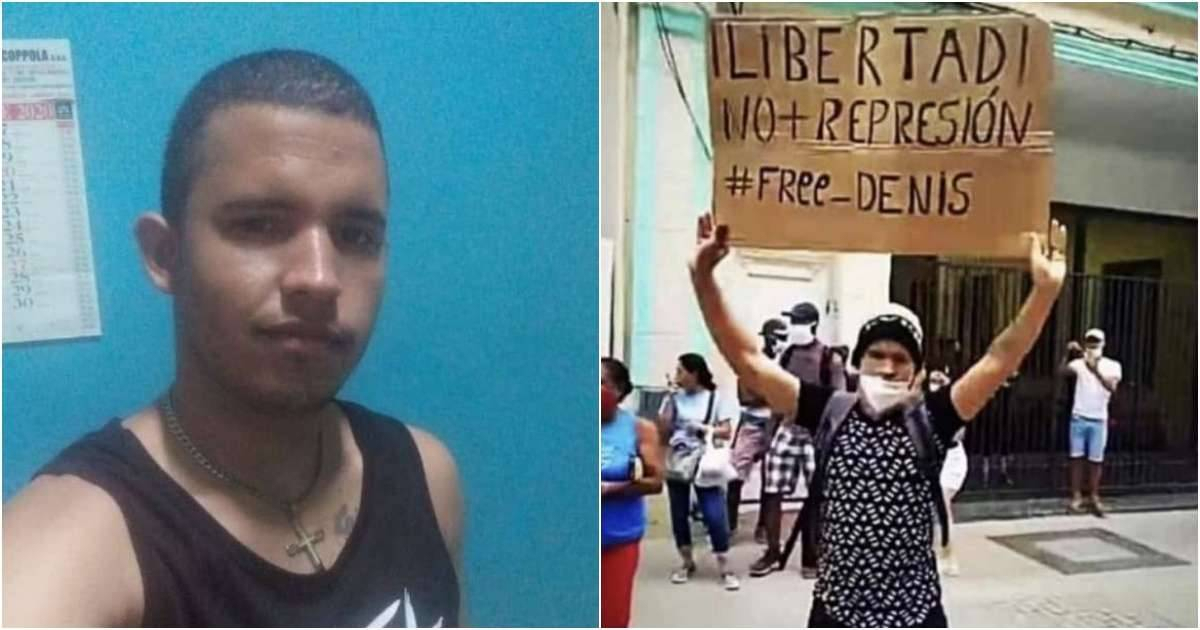Former Cuban political prisoner Luis Robles Elizástigui, often referred to as "the young man with the sign," has voiced his dissatisfaction with the terms of his release in a Facebook post. While he expressed gratitude to those who campaigned for his release, Robles made it clear he does not feel truly free, citing restrictions that limit his freedom of movement and expression.
"This so-called freedom is not what we truly deserve," stated Robles, who was released on Thursday after nearly serving a five-year sentence for peacefully protesting in Havana in 2021. He was arrested for holding a sign demanding an end to repression and the release of political prisoners.
Despite being back home with his mother, who is dealing with a challenging time due to his father's illness, Robles emphasized that the situation remains tough. "Here, thinking the way one thinks is a crime. Saying what one feels is also a crime. I don't believe a person living like that can be happy," he added.
"I don't feel happy because, in reality, I should never have gone through everything I endured in prison, all the suffering my mother experienced," he lamented. He further noted, "The news didn't excite me as I thought it would because living like this is not what one deserves," he reiterated.
Robles was one of 553 inmates released as part of a negotiation mediated by the Vatican and the United States government following the removal of Cuba from the list of state sponsors of terrorism. The Cuban Observatory for Human Rights (OCDH) confirmed his release, and Robles's mother, Yindra Elizástigui Jardines, also stated that her son had returned home, albeit under conditional release.
Robles's case became a symbol of the fight for freedom of expression in Cuba. His conviction, based on charges of "enemy propaganda" and "disobedience," was widely criticized by human rights advocates who viewed the accusations as baseless.
During his imprisonment, Robles was transferred between several facilities, including the high-security Combinado del Este prison, before being moved to a minimum-security regime at the La Lima correctional labor camp. In his last transfer, his mother reported threats from state security against him due to his public demands for freedom on social media.
Despite the harsh conditions, Robles expressed gratitude to those who fought for his release and shared his hope that one day Cubans will enjoy true freedom. On Friday, the regime announced that 127 prisoners had already been released.
Understanding Luis Robles's Release and Its Implications
What were the charges against Luis Robles?
Luis Robles was charged with "enemy propaganda" and "disobedience" for peacefully protesting in Havana in 2021.
Why is Luis Robles's case significant?
Robles's case has become a symbol of the struggle for freedom of expression in Cuba, highlighting the regime's repression of dissent.
How was Luis Robles released?
Luis Robles was released as part of a negotiation mediated by the Vatican and the United States following Cuba's removal from the list of state sponsors of terrorism.
